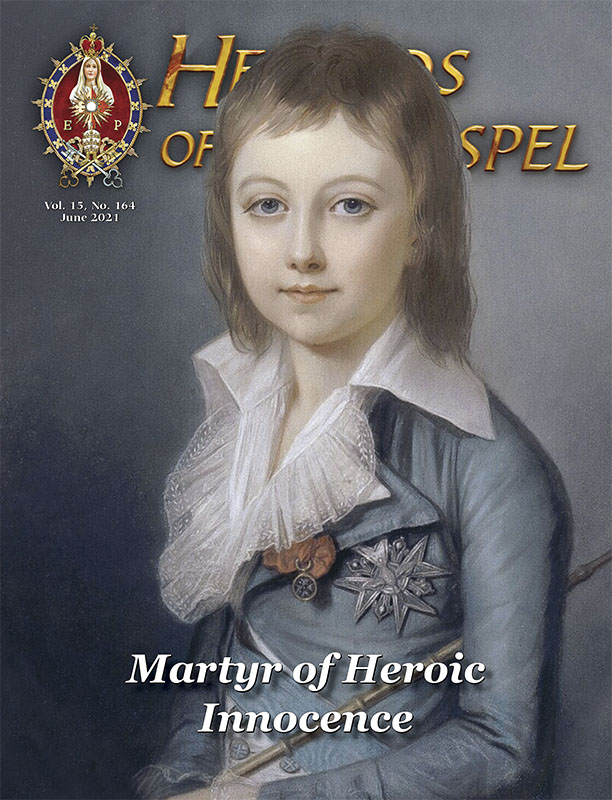When we observe a child contentedly amusing himself with a toy or gazing up at the stars, we immediately feel some chords of our springtime innocence echo deep within our soul, chords that are at odds with the cacophonous, prosaic and selfish world in which we live. As St. Thomas Aquinas states, wholesome recreational activity, so typical of early childhood, is, like metaphysics, essentially unpretentious, contemplative and free of concrete interests. The child enjoys, so to speak, a co-naturality with Heaven.
Sins against chastity – the “angelic virtue” – are the ones most at odds with this primal innocence. Indeed, they obliterate the focus of contemplation, dull the intelligence and corrode true love. Nevertheless, since impurity acts largely upon the senses, it has a vehement force of penetration. It is not without reason that the Revolution makes use of it to systematically corrupt youth. And what a massacre of innocence we have witnessed!
However, impurity is not a recent sin. History tells, for example, how ancient peoples perverted childhood in the most abominable ways, committing sins which, according to the Bible, cry out to Heaven for vengeance. With the Incarnation, Our Lord Jesus Christ brought a new paradigm of innocence, whose apex was himself, God made a Child in a virginal womb.
The Redeemer not only protected the little ones, but drew them particularly close to himself, holding them up a model of perfection: “Let the children come to Me, do not hinder them; for to such belongs the Kingdom of God. Truly, I say to you, whoever does not receive the Kingdom of God like a child shall not enter it” (Mk 10:14-15). And He went further, anathematizing those who scandalize them: “it would be better for him to have a great millstone fastened round his neck and to be drowned in the depth of the sea” (Mt 18:6).
Following in the footsteps of the Divine Master, the Church also has the mission to protect the most vulnerable, to safeguard life from conception, to care for orphans, instruct the uneducated, catechize and baptize pagan peoples and, of course, to protect the innocent from scandal. To accomplishment this, the virtue of temperance, proper to moderating concupiscence, is not enough. Equally necessary is the virtue of fortitude, whose principal act is to resist, that is, to stand firm in the face of danger.
Contrary to what certain superficial views indicate, innocence is intrinsically linked to combativeness, and examples of this are the adolescent Tarcisius, holy martyr of the Eucharist; the three little shepherds of Fatima, who bravely resisted the machinations of the civil power; and the heroic example of Louis XVII, recounted in these pages. Paul Claudel rightly exclaimed: “Youth is not made for pleasure, but for heroism!”
A seeming innocence which lacks the weapons of fortitude is but a childish sentiment, incapable of discernment (cf. 1 Cor 14:20); combat without innocence is foolhardiness, for it will be devoid of the strength that comes with a pure heart.
In this context, it can be affirmed that the Church, more than ever, has the duty to be a shield which protects the innocent and a sword against the evil which so gravely threatens them. ◊




